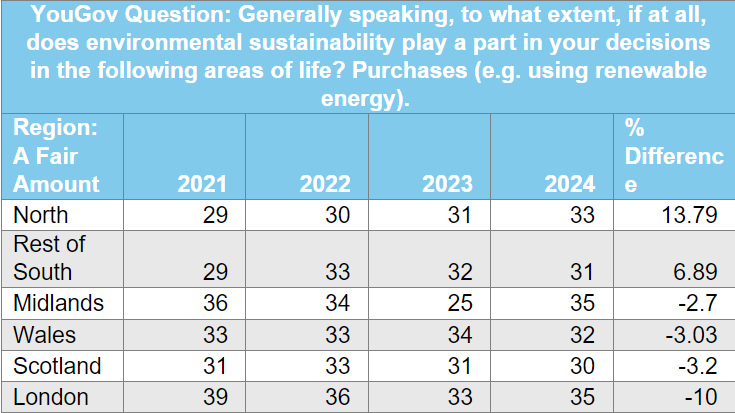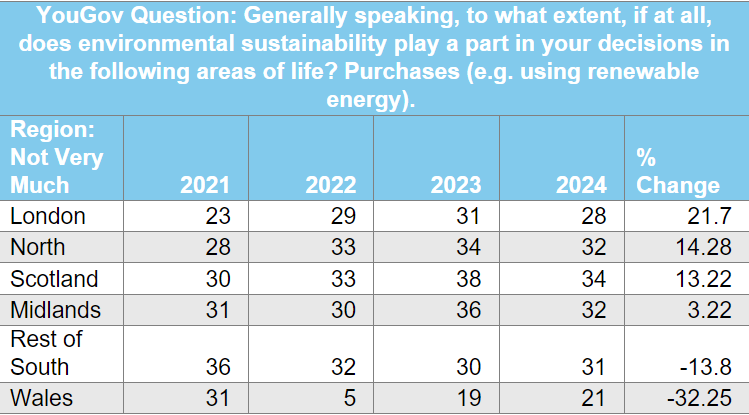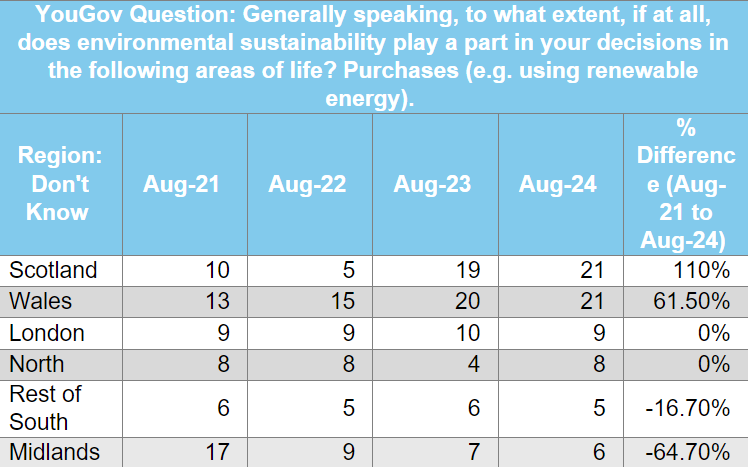New data analysis reveals a promising shift towards environmentally driven purchases across various regions in England, highlighting a growing commitment to sustainability and the environment.
YouGov data analysed by Allen Leasing asked people, to what extent, if at all, does environmental sustainability play a part in decisions in the following areas of life? This includes purchases such as choosing to use renewable energy in your home or switching to an electric car.
Respondents from the North of England and the Rest of the South consistently consider for environmental and sustainable factors in their purchasing decisions. The “Rest of South” means the larger area, excluding London, containing the Southwest and Southeast of England.
There was no change in respondents answering “to a large extent” in the rest of the South and the North between 2021 and 2024.
London experienced an 11% decline in prioritising sustainable purchase decisions “to a large extent”.
The Midlands saw the largest decline “to a large extent” with 18.18%, as other factors may have taken priority when considering sustainable and environmental options such as the cost-of-living crisis.
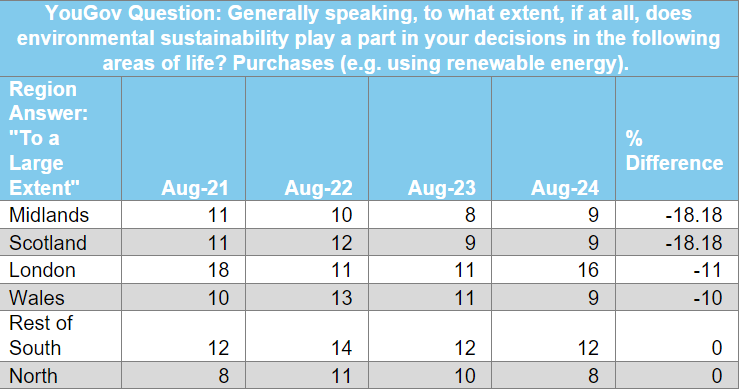
The North experienced a 5% decrease in respondents answering, “Not at all”.
There was an 11% decrease in answering “not at all” in London, the largest decrease.
The Rest of the South and Midlands topped the table with a 23.50% increase.
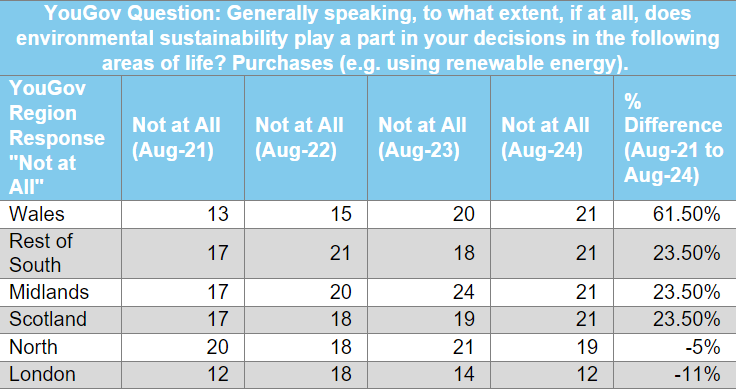
Respondents in parts of the country who answered, “not at all,” may have other priorities, such as the cost-of-living crisis, overshadowing environmentally driven lifestyle choices and might still practice sustainability in cost-free ways.
Chanel Boddington from Allen Leasing commented, “It is interesting to see how the pandemic and rising living costs have impacted people’s sustainable decision-making nationwide.”
“Our planet is a finite and irreplaceable resource, making it vital for everyone to engage in sustainability wherever possible. Even small, cost-free actions—such as participating in local recycling programs or maintaining compost areas—play an important role in protecting this precious world we share.”
“The more we understand the environmental impact of our actions, the more empowered we become to make decisions that align with sustainability. Whether it’s choosing renewable energy, reducing waste, or embracing eco-friendly transportation, every small action contributes to a larger movement. Every effort counts toward ensuring a thriving future for both people and the environment.”



